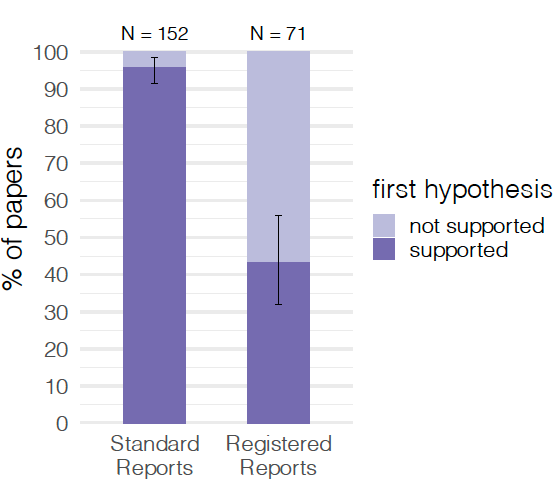 Kristin Eldon Whylly
Kristin Eldon WhyllyThe current research reward system favors positive results, leading to literature that may not accurately reflect reality. Although there is backing for open scholarship practices, the adoption of these behaviors in recent publications has been limited. As scientific understanding becomes increasingly complex and multifaceted, fostering open science is even more necessary. Failure to align the reward system with open practices can undermine the progress within a community or field and lead to low-quality research.
Promising initiatives demonstrate a future where open science practices safeguard the quality of research and offer opportunities for collaboration, recognition, and scholarship.
Optional transparency can create an uneven playing field that hurts researchers who choose open practices like data sharing and code availability. These practices necessitate investment in resources and infrastructure to address concerns such as privacy and intellectual property. Addressing these challenges calls for collaborative efforts involving researchers, funding agencies, institutions, and publishers.
Changing the reward system is essential for improving the quality and credibility of research. These changes include rewarding researchers for sharing data, replicating others’ work, and publishing negative results. Open science practices must include journals, the key gatekeepers of knowledge dissemination. Journal policies and practices, including peer review processes and editorial decision-making, should adhere to principles of transparency. Initiatives like open peer review and disclosure of editorial considerations offer promising avenues for increased journal accountability.
Open science practices can offer tangible rewards for researchers. Organizations are working on the problem, offering a template for a way to move forward. The Templeton World Charity Foundation (TWCF) took proactive steps to reshape organizational norms and reward systems. By restructuring grant-making techniques and emphasizing Registered Reports, TWCF incentivized collaboration, open science, and rigor to accelerate advancements in consciousness studies. TWCF uses structured adversarial collaboration and a partnership with funders to enforce best practices in open science and ensure fairness.

Anne Scheel (2021) and her colleagues compared Registered Reports and standard articles. For each paper, they identified the first hypothesis tested and coded whether the results supported the hypothesis or not. Standard reports almost always reported positive results for the hypotheses. When the authors and journal pre-committed to the hypothesis and reported the result, just 44% were supported.
At the University of Virginia's School of Data Science, mandatory open access and a robust infrastructure for data and code sharing have woven transparency into the fabric of their research culture. This commitment translates into tangible rewards for the data school’s researchers. Faculty members report enhanced collaboration opportunities, attracting talented students and researchers drawn to this open environment. The school's focus on open scholarship also attracts funding that bolsters research endeavors and individual career trajectories. Moreover, this culture nurtures a sense of intellectual integrity and scholarly merit, fostering personal satisfaction among faculty who see their work as having a wider impact on the world.
Shifting the perception that open scholarship practices have little bearing on career advancements is a significant challenge. Nevertheless, showcasing tangible evidence of the rewards and advantages associated with open science practices can play a pivotal role in accelerating their adoption.

6218 Georgia Avenue NW, Suite #1, Unit 3189
Washington, DC 20011
Email: contact@cos.io

Unless otherwise noted, this site is licensed under a Creative Commons Attribution 4.0 International (CC BY 4.0) License.
Responsible stewards of your support
COS has earned top recognition from Charity Navigator and Candid (formerly GuideStar) for our financial transparency and accountability to our mission. COS and the OSF were also awarded SOC2 accreditation in 2023 after an independent assessment of our security and procedures by the American Institute of CPAs (AICPA).
We invite all of our sponsors, partners, and members of the community to learn more about how our organization operates, our impact, our financial performance, and our nonprofit status.